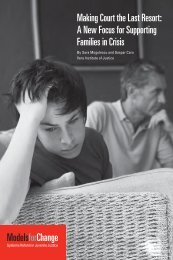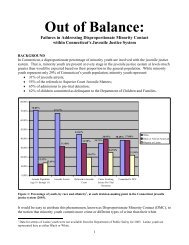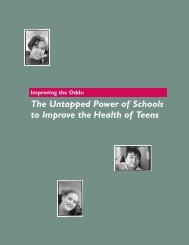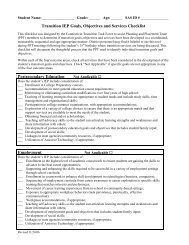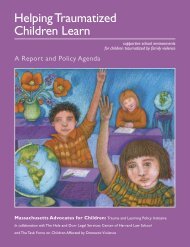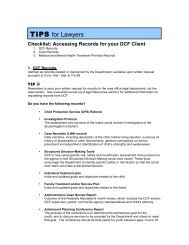Utility Access and Health - Center for Children's Advocacy
Utility Access and Health - Center for Children's Advocacy
Utility Access and Health - Center for Children's Advocacy
Create successful ePaper yourself
Turn your PDF publications into a flip-book with our unique Google optimized e-Paper software.
ImpactAs a result of MLP | Boston’s ef<strong>for</strong>ts, coordinated with those of other utility advocacy groups,time strapped health care staff at hospitals across the state no longer have to recertify the sameserious health conditions every month. That means a lot less paperwork, so doctors <strong>and</strong> nursescan spend more time with their patients.But the real winners in this story are the low-income families <strong>and</strong> individuals with serious chronicmedical conditions―the people whom the rules are designed to protect. Patients who <strong>for</strong> yearshad to deal with a burdensome recertification process while simultaneously battling a chronicillness now have greater access to uninterrupted energy services. Instead of making frequenttrips to the doctor to get their illnesses certified again <strong>and</strong> again, these patients now only need toget certification letters twice a year.The small changes in the DPU regulations continue to have a huge impact on patients’ lives.For many of Boston’s most vulnerable families, having uninterrupted utilities access <strong>for</strong> a sixmonth period contributes to peace of mind throughout the year. With the revised regulations inplace, longer shut-off protection periods can carry patients through cold winter seasons <strong>and</strong> hotsummers, allowing them to focus on their health <strong>and</strong> the health of their families.Conclusion<strong>Health</strong> care provider voices <strong>and</strong> experience carry enormous weight in public policy debates aboutthe needs of vulnerable populations. MLP | Boston’s policy impact demonstrates that health careproviders can improve their advocacy impact by linking with lawyers who care <strong>for</strong> their patients.Using a patients-to-policy model, medical-legal partnerships can work across disciplines to changesystems, improve compliance, <strong>and</strong> increase access to basic needs which is the key to shifting thehealth trajectory of vulnerable individuals <strong>and</strong> families.



